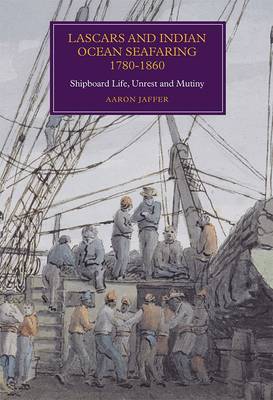
- Afhalen na 1 uur in een winkel met voorraad
- Gratis thuislevering in België vanaf € 30
- Ruim aanbod met 7 miljoen producten
- Afhalen na 1 uur in een winkel met voorraad
- Gratis thuislevering in België vanaf € 30
- Ruim aanbod met 7 miljoen producten
Zoeken
€ 177,45
+ 354 punten
Omschrijving
Lascars were seamen from the Indian subcontinent and other areas of the Indian Ocean region who were employed aboard European ships from the sixteenth to the twentieth centuries. They experienced difficult working conditions and came from a wide variety of ethnic, cultural and religious backgrounds, which created considerable scope for friction between them and their European officers. This book, based on extensive original research, examines the role of lascars employed aboard country ships, East Indiamen and other British sailing vessels. The focus is on protest in its various forms, from mild unrest to violent acts of mutiny in which lascar crews murdered officers, seized ships and then sought refuge with local rulers. It is only through descriptions of such events - found in logbooks, seafaring diaries and the East India Company's judicial records - that many aspects of lascar life at sea become visible and lascar voices can be heard. Through the study of mutiny and other forms of protest, the book provides a detailed insight into shipboard conditions amongst lascars employed during this period. Aaron Jaffer completed his doctorate in history at the University of Warwick.
Specificaties
Betrokkenen
- Auteur(s):
- Uitgeverij:
Inhoud
- Aantal bladzijden:
- 254
- Taal:
- Engels
- Reeks:
- Reeksnummer:
- nr. 12
Eigenschappen
- Productcode (EAN):
- 9781783270385
- Verschijningsdatum:
- 17/11/2015
- Uitvoering:
- Hardcover
- Formaat:
- Genaaid
- Afmetingen:
- 156 mm x 234 mm
- Gewicht:
- 530 g

Alleen bij Standaard Boekhandel
+ 354 punten op je klantenkaart van Standaard Boekhandel
Beoordelingen
We publiceren alleen reviews die voldoen aan de voorwaarden voor reviews. Bekijk onze voorwaarden voor reviews.








